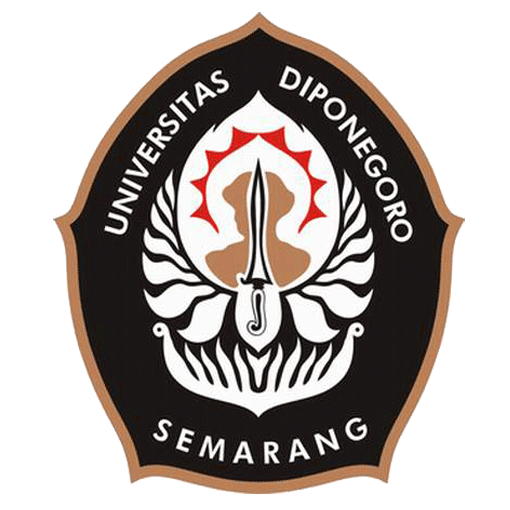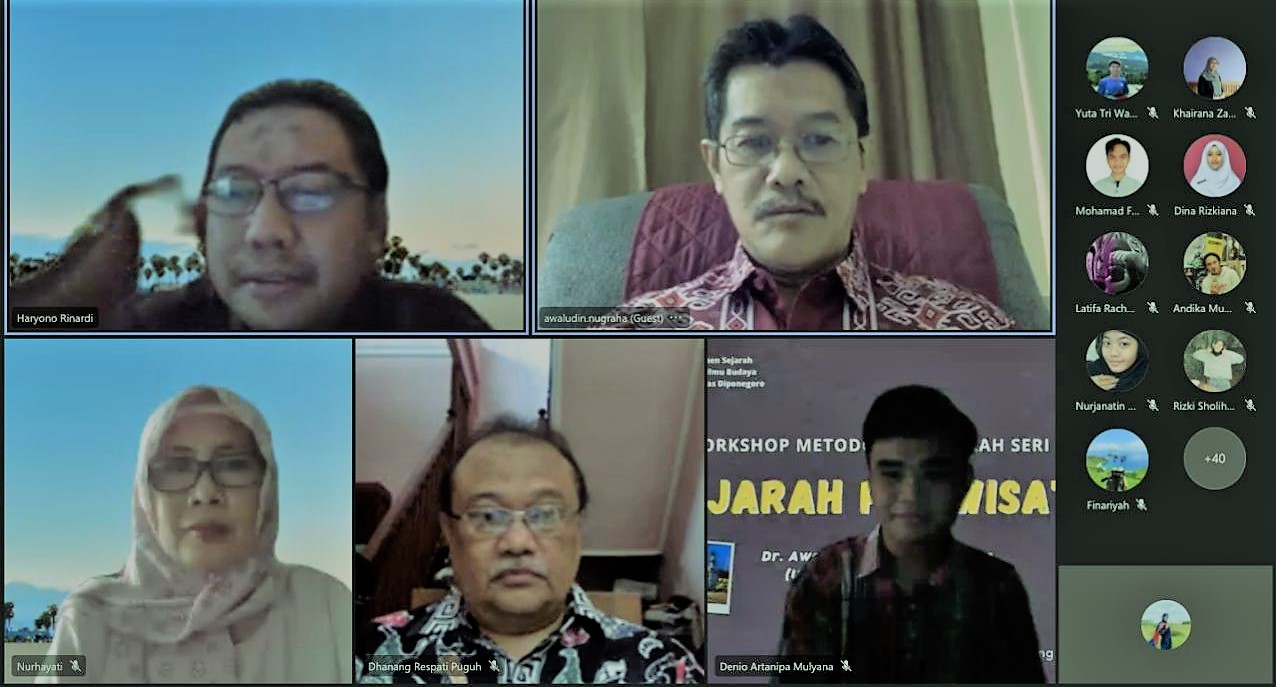Department of History, Faculty of Humanities (FIB), Diponegoro University (Undip) – Semarang. The Department of History recently held the Series VI Methodology Workshop with the major topic of “Tourism History”, last week. On this occasion, the theme raised is the history of tourism. This workshop was initiated by the Department of History to provide alternative topics for undergraduate students in history who are currently formulating research topics or thesis.
Dr. Nurhayati, M. Hum. as the Dean of Faculty of Humanities welcomed and opened this event with a belief that Undip history students would give birth to brilliant ideas related to the history of tourism after learning from this workshop. “The output of this tourism history theme is considered to be useful for the success of the important agenda of the Sustainable Development Goals (SGDs), especially in the promotion of culture,” explained Dr. Nurhayati, M. Hum.
Dr. Awaludin Nugraha, M. Hum. from the History Study Program at Padjadjaran University was specially invited as a speaker because his expertise is in line with the big theme of this workshop. Moderated by Dr. Haryono Rinardi, M. Hum., this workshop ran so dynamically by revealing various important things, including those related to the basic meaning of tourism history, concepts and theories that can be used as analytical tools or guidelines, and opportunities for interesting themes to be followed up as a research.
The study of tourism cannot be separated from the free time that tourists have. Free time is the time you have after completing primary needs. “Currently, there is a paradigm shift in tourism. Tourism is no longer targeting a booming number of tourists (mass tourists). However, now the management is targeting a small number of tourists, but having a long time (quality tourism).” explained Dr. Awaludin emphasized how interesting it was to study the tourism paradigm shift.
Participation of local tourists and the government are needed in establishing synergy to realize quality tourism. The presence of tourists for a long duration of time is considered more financially profitable, a tourist will spend money at tourist attractions in the duration of time during his stay there. Local people also understand that tourism is a secondary livelihood that is more widely earned. Thus, they secure tourism and tourists. This attitude of the local community is the result of a participatory approach. As a concrete example, in Yogyakarta there is a tourist village of Nganggeran where local people are actively involved in keeping the environment beautiful and comfortable for tourists.
In the context of historical research, it is very interesting to look at the irritation index, which is related to local people’s acceptance of tourism development. This acceptance is closely related to dynamic processes, for example from enthusiasm and then feeling irritated and then refusing or resisting the presence of tourists, for example, Kampung Adat Naga and Baduy tourism which is increasingly restricted by local residents, even gradually closing.
Another theme that looks trivial, but is still interesting to discuss is the rental of stretchers during the colonial period to enter tourist attractions or regarding the Indonesian Tourism Board. What is really behind the council? This study seems to be not a focus in the mainstream narrative of tourism history. In addition, the shift in the function of the hotel which was originally a resting place to a meeting place is no less interesting as a research theme.
“Hopefully this workshop will produce interesting and relevant proposals to our needs. However, do not get caught up in the theme of tourism that leads to application, because the two do have a boundary. Thus, caution is needed to see the difference between the two,” said the Head of History Department, Dr. Dhanang Respati Puguh, M. Hum. (Fanada Sholihah/ History).

